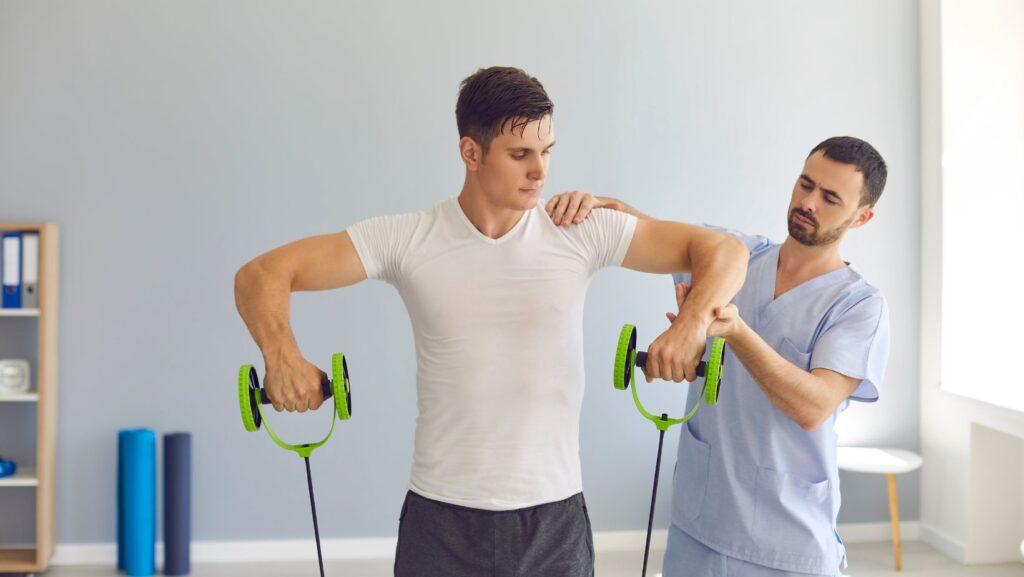Graduate study in physical therapy is exciting and demanding. Students often balance heavy coursework, clinical requirements, and personal obligations, all within a limited timeframe. Making it through physical therapy school requires careful planning to ensure success without sacrificing health or balance.
Developing strong time management habits early helps students stay organized, reduce stress, and make the most of their educational journey. This article outlines effective strategies designed specifically for PT graduate students.
-
Establishing Clear Priorities
PT graduate students face overlapping responsibilities that can quickly become overwhelming if approached without a plan.
By ranking academic, clinical, and personal tasks according to importance and urgency, students can focus energy where it will have the most impact. This approach prevents last-minute scrambling and reduces the stress of competing demands. Clear priorities also create a sense of structure, making it easier to manage complex schedules and maintain consistency over time.
-
Structuring a Realistic Schedule
A schedule is most useful when it reflects actual commitments rather than an idealized plan. PT graduate students benefit from creating weekly schedules that account for fixed obligations such as classes, labs, or rotations, while also leaving space for flexible tasks like study sessions or assignment preparation.
Building realistic time blocks for academic work and daily responsibilities guarantees that no area of life is consistently neglected. Importantly, an effective schedule is adaptable. Unexpected clinical demands, group projects, or personal commitments are less disruptive when students have planned with flexibility in mind.
-
Using Breaks Effectively
Time management does not mean working nonstop. Strategic breaks are essential for focus, retention, and overall health. Short pauses between study blocks can be used for stretching, hydration, or stepping outside for fresh air.
These small moments help reset concentration and prevent mental fatigue. Longer breaks, such as eating a balanced meal or engaging in light exercise, contribute to both physical and cognitive stamina. When students treat rest as a tool rather than a distraction, they are better able to sustain productivity throughout long academic days and demanding clinical rotations.
-
Leveraging Study Groups and Collaboration
Collaboration plays an important role in graduate education, especially in a hands-on field like physical therapy. Study groups provide accountability and allow students to share perspectives, often strengthening their understanding of complex topics.

When students explain material to peers, they reinforce their comprehension and identify areas needing further review. Collaboration also spreads the workload through dividing readings or preparing for exams as a team. The key is to choose focused and goal-oriented groups to ensure that time spent together contributes meaningfully to academic progress rather than serving as a distraction.
-
Managing Clinical Demands Alongside Coursework
Balancing classroom requirements with clinical rotations is a unique challenge for PT graduate students. Clinical schedules can be unpredictable, making it essential to prepare in advance. Bringing condensed study materials or flashcards allows students to use short gaps in the clinical day productively.
Planning academic work around rotation hours guarantees that deadlines are met without sacrificing rest. Consistent communication with professors and clinical supervisors can reduce stress by clarifying expectations. With careful planning, students can meet the demands of both environments while continuing to progress toward professional competence.
-
Incorporating Self-Care as Part of Time Management
Time management extends beyond academic and clinical performance. A sustainable routine includes attention to physical health, mental wellness, and adequate rest. Regular exercise improves energy and focus, while balanced nutrition supports cognitive performance.
Prioritizing sleep helps memory retention and emotional stability, which are essential for graduate-level learning. Viewing self-care as part of time management reframes it from being optional to being necessary. Students who integrate wellness practices into their schedules often find themselves more resilient, efficient, and prepared for the demands of their profession.
-
Adapting to Changing Demands
Graduate programs rarely remain static, and time management strategies must evolve as responsibilities shift. More hours may be devoted to study during exam periods, while clinical rotations could require earlier mornings or longer days.
Flexibility in adjusting schedules and priorities is essential for maintaining balance. Students who regularly reassess their routines are better equipped to handle transitions smoothly, so that productivity and well-being remain consistent throughout the program.
Building Habits That Last
Time management is a critical skill for PT graduate students working through the intense demands of coursework and clinical training.
Establishing priorities, structuring realistic schedules, using breaks strategically, collaborating effectively, managing clinical obligations, and incorporating self-care are strategies that create balance and consistency.
Beyond academic success, these habits prepare students for the realities of professional practice, where the ability to manage time well is essential.



